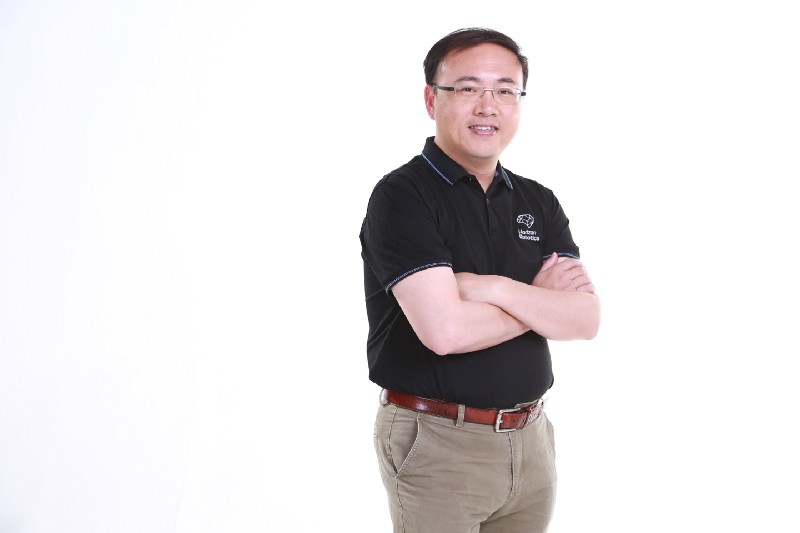Can almost any device become an intelligent entity with the ability to perceive, interact, understand and make decisions? AI expert Kai Yu, a former head of Baidu’s Institute of Deep Learning and the founder and CEO of Beijing-based Horizon Robotics, intends to prove it can be done. The company, which counts Sequoia Capital and Russian venture capitalist Yuri Milner among its investors, makes artificial intelligence hardware and software to power autonomous vehicles, smart homes and smart cities. It was named a World Economic Forum Technology Pioneer in June. Yu recently spoke to The Innovator about what’s next for Horizon Robotics and AI.
Q. Please explain which types of “things” Horizon Robotics, the company you founded, is aiming to arm with artificial intelligence.
KY: Horizon Robotics is developing low-power high performance processors together with software algorithms to create embedded solutions. The goal is to make any device an intelligent entity with the ability to perceive, interact, understand and make decisions. We are focusing on three verticals: autonomous cars, smart homes and smart cities.
Q: What do you find the most challenging?
KY: We are looking to add key functionalities across many products. We want to enable them to see and to talk and we want to put computer vision into the front end and not in the cloud. This requires innovation. It is non trivial to add powerful computer vision to a local device. The idea is that a device like an air conditioner will be perceptive. The temperature would be automatically adjusted depending on who you are, where you are and what you are doing.
Q: I remember reporting on smart homes back in 1999. The idea was that your refrigerator would know you were out of milk and automatically order it. The perceptive applications envisioned are still not in widespread use and most of us are still not living in “smart homes”. Why?
KY: One of the key missing ingredients was connectivity. In 1999 there was no ubiquitous connectivity. The second thing is we did not have embedded intelligent processors that can do computation locally. That is what Horizon Robotics is developing.
Q: The applications are not just for smart homes. Can you tell us about some of the smart citiy applications?
KY: The primary devices used will be smart cameras. Smart cameras and processors and algorithms will be used in retail stores to collect data and track the behavior of the customers and personalize services — essentially like Amazon Go. But Amazon Go uses a lot of expensive camera. That system is both expensive and difficult to deploy. I believe the cost of deployment can be cut substantially aby 100 times[m1] and then you will see such solutions being used by other retail stores, coffee shops and within cities.
Q: How long do you think it will take to achieve such a radical cost reduction?
KY: We plan to launch our processor at the end of this year and at this time we think we can achieve this.
Q: Tell us about Hugo, a smart car system made by Horizon Robotics, to enhance safety on the road for self-driving vehicles. The system can detect vehicles, pedestrians and objects on the road. A growing list of companies claim to be able to do the same thing. What makes Horizon Robotics’ system different?
KY: In China I believe Level 3 autonomous cars are still some five years away. Right now the immediate demand is for the safety and management of mobility. China is the biggest market for cars in the world. Every year we well 30 million cars. The question is how can be best guarantee the safety of the customers? In China the advanced driver assistance system (ADAS) is very different from the same systems in the western Europe and in the US . This is because in China people change lanes very frequently and pedestrians can be any place, even on the highway. It is very different and we have adapted our solution accordingly.
Q: Horizon Robotics could do very well by targeting China’s huge domestic market. Do you consider yourself a Chinese company or do you have global ambitions?
KY: We are China-based but we are positioning Horizon Robotics as a technology intensive global company. We have customers in Europe, Japan and North America but China is the most important market for us right now. If we win China — which is a huge market with big challenges in city management, traffic and driver and pedestrian safety — then we think we can win the global market.
Q: I understand that you are collaborating with Intel on autonomous cars. Is this true? Can you tell us what this involves?
KY: We have a very close collaboration with Intel. At CES (The Consumer Electronic Show in Los Vegas) we worked together to demonstrate an Advanced Driver Assistance Systems (ADAS) product. We are collaborating with Intel in ways that are more and more strategic. We see ourselves as a software solution more than chip company. We think we can work together with Intel to come up with a better AI solution.







